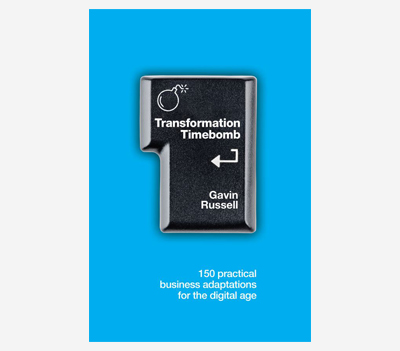
We have reached a tipping point
To remain competitive, every company across every industry is now compelled to rethink its established ways of doing business. Change is set to continue, the ride is only going to get faster and the differences more fundamental. The risks of not adapting are now outweighing the risks of staying the same.
The tarnished state of the market economy means organisations can no longer focus exclusively on short-term rewards for shareholders, taking as much money from society and putting as little back in. Now they are being forced to think beyond the quarterly balance sheet towards sustainable, long term relevance.
Evolving stakeholder expectations, shifting economic landscapes and disruptive new competitors mean commercial success cannot be delivered through cost-cutting, production efficiency or fixed strategies. Instead, businesses must focus on customers rather than products. Innovation rather than habit. Trust rather than sales.
Technological advances, changing geopolitics and the evolving demand and supply of human capital means that profitability is no longer driven by even bigger, more vertically integrated businesses. Performance is no longer delivered through rigid processes, strict compliance and top-down command and control. Instead, organisations must find ways to empower, rather than govern. To share rather than own. To collaborate, rather than compel.
Success in the digital age starts with embracing these new realities, understanding the fundamentally different questions they raise and developing different answers before it’s too late.
However, among all this change and disruption, there is real opportunity.
Transformation Timebomb seeks to demonstrate that a few changes can make a world of difference. That businesses don’t need to undo the past to be successful in the future. That effective change can be simple, quick and straightforward, rather than painful, career-limiting or high risk.

Transformation Timebomb seeks to demonstrate that a few changes can make a world of difference. That businesses don’t need to undo the past to be successful in the future. That effective change can be simple, quick and straightforward, rather than painful, career-limiting or high risk.
In fact, successful companies today are no more creative, intelligent or clairvoyant than the next. What sets them apart is their ability to let go of old habits, preconceptions and fixed courses of action. This has allowed them to discover new ways to dramatically improve their performance, productivity, and profitability.
They have demonstrated that it is possible to create businesses that not only dynamically respond to their rapidly evolving environment, but to also improve talent performance and commitment through meaning and purpose. To build teams that autonomously make great decisions under pressure, while simultaneously building deeper, stronger customer relationships that drive loyalty and advocacy. To empower their distributed workforce to collaborate effectively and get ahead of demand, improving their commercial relevance.
They are developing organisations that are able to listen to external forces and change frequently and easily. To do many different things well, without compromising their core purpose. To be versatile, flexible, multi-talented and resourceful while also being cost effective, quick and risk-conscious. They are creating ‘The Protean Enterprise.’
The challenges of the digital age are so varied and change so constantly that no single model, philosophy or credo could ever answer all the questions that organisations face. However, successful organisations seem to share some clear and consistent attributes.
The Protean Enterprise is a hypothetical organisation that embodies these attributes. While it is unlikely that any business will display all these qualities all of the time, the behaviours below offer useful blueprint upon which business can model their approaches, inform their discussions or guide decisions:
Showing not telling
Built on personal ownership and integrity, protean leaders show the way through their actions. They don’t prioritise self-preservation or outsource essential initiatives to reduce personal risk.
Inspiring, not controlling
With a clear purpose and authentic identity, leaders unify their distributed workforce, encouraging questions, supporting curiosity and sharing ownership. They simplify and streamline their operations to reduce drag while liberating their people to do their best work.
Sustainable relevance
Focusing on results not tasks, they defer immediate gratification for long term value-creation. They embrace sharing over owning, building dynamic supply that delivers higher quality at speed, only paying for what they need.
Focus on trust and loyalty
They invest in positive long-term relationships with all their stakeholders – from customers and clients to employees and suppliers. They treat everyone as a respected asset that will grow in value, prioritising continuous and mutual success.
Always listening, always learning
Connected to the right sources of information, they embrace different perspectives, listen to all their stakeholders and use mistakes, failures and feedback as inspiration to improve.

